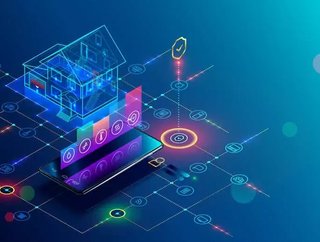LG’s AI washing machine latest step on smart device march

The integration of smart technologies into everyday items continues at pace, with any and every domestic item seemingly ripe for the application of the “smart” prefix. The latest example comes from South Korea’s LG Electronics, and its newly announced AI powered washing machines.
Coming to European markets by the end of the year under the company’s smart device brand, ThinQ, the machines incorporate so-called Direct Drive technology. In its press release, the company said that 20,000 data points were tracked by the technology in order to optimise the washing cycle. The machine also accepts commands from connected smart speakers and mobile apps.
“The combination of ThinQ AI with LG’s proven Direct Drive technology delivers customer benefits that are more significant than anything in the evolution of washing machines in the past century,” said Song Dae-hyun, president of LG Electronics Home Appliance and Air Solution Company.
SEE ALSO:
-
Siemens opens Smart Manufacturing Innovation Centre in Chengdu
-
New IoT solutions from Dell Technologies will 'automate insights'
The devices represent the consumer end of the IoT space, demonstrating the applicability of the technology to the home environment. As much as they might add convenience for consumers however, it is businesses who are able to reap the biggest rewards.
Smart appliances are big business, with PwC estimating that £10.8bn will be spent on smart home devices in the UK alone in 2019. One of the key sticking points for consumers, and one of the key drivers for business, is the data that such technologies are able to gather. While consumers might fear the security risk, businesses are able to collect an unprecedented amount of data on the use of their products, allowing them to refine, tailor and improve their offerings and potentially revolutionise the ways that they do business.
Rob Holston, EY’s Global Consumer Products Commercial Analytics Leader, was quoted in a company blog post as saying: “While connected devices and the rise of availability of customer data can lead to some obvious insights and ways to improve products in the short-term, businesses need to step back and rethink their fundamental assumptions about their industries.”
- OpenText’s Muhi Majzoub: Engineering Platform Growth with AIEnterprise IT
- OpenText CEO Roundtable: The Future of Safe Enterprise AIDigital Transformation
- OpenText AI: Empowering Businesses in Information ManagementDigital Transformation
- Microsoft in Japan: $2.9bn Investment to Boost AI & CloudCloud & Cybersecurity






